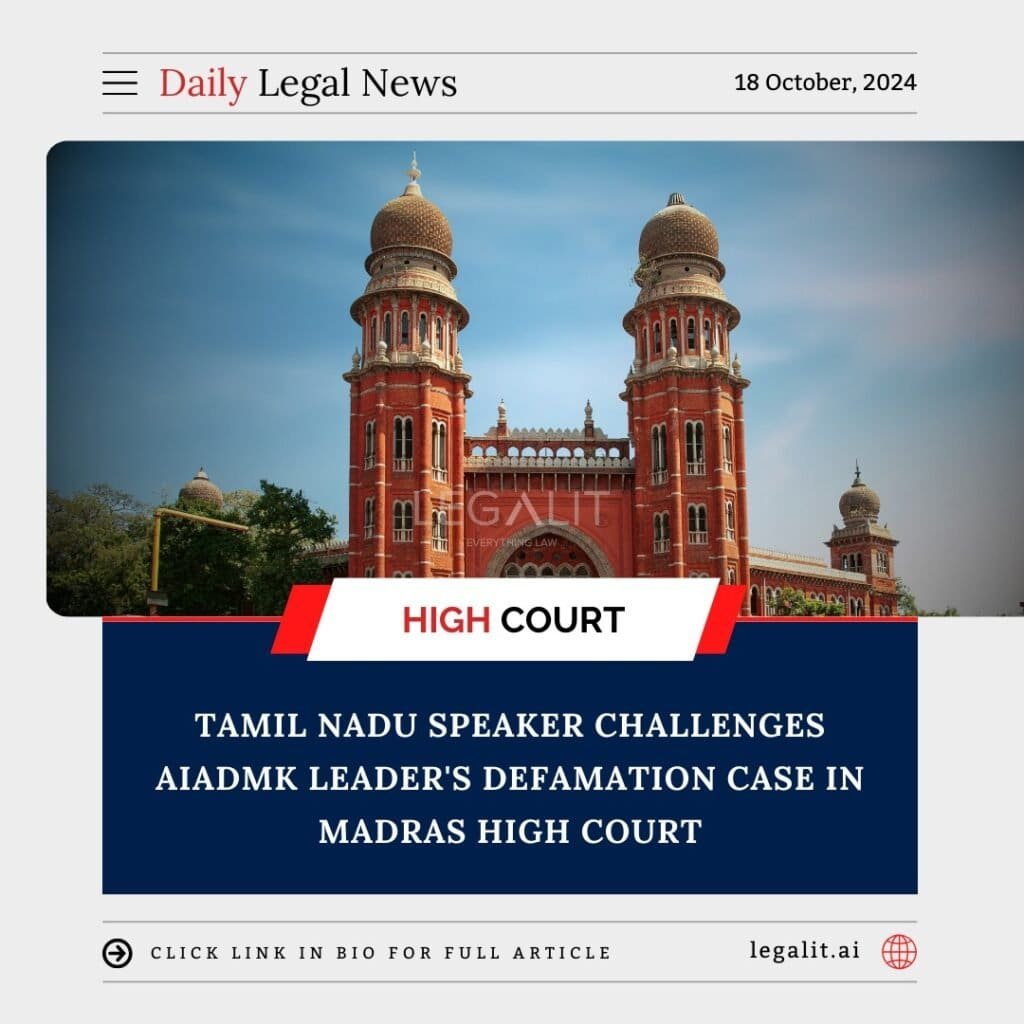
The Speaker of the Tamil Nadu Legislative Assembly has moved the Madras High Court to challenge a defamation case filed against him by an AIADMK leader. This legal action underscores the ongoing political tensions in the state and raises questions about the limits of political discourse and accountability.
Background of the Case:
The defamation case stems from statements made by the Speaker, which the AIADMK leader claims have harmed his reputation. The specifics of the alleged statements and the context in which they were made are critical to understanding the case’s implications. The Speaker contends that his remarks were made in the course of his official duties and should therefore be protected under parliamentary privileges.
Legal Considerations:
In the motion filed, the Speaker’s legal team argues that the defamation claim is an attempt to stifle legitimate political debate. They assert that the comments in question were made within the bounds of parliamentary proceedings, which are typically afforded certain protections to encourage open dialogue among elected officials.
Implications:
This case could set a significant precedent regarding the scope of parliamentary privilege and the extent to which elected officials can be held accountable for statements made in their official capacity. A ruling in favor of the Speaker may affirm the right of legislators to speak freely without the fear of legal repercussions, while a decision favoring the AIADMK leader could signal a shift toward greater accountability for political figures.
Conclusion:
The Madras High Court’s consideration of this defamation case reflects the broader dynamics of political discourse in Tamil Nadu. As the court deliberates on the balance between free speech and defamation, the outcome will likely influence how politicians engage with one another and the public in the future.
[ajax_laod_more]